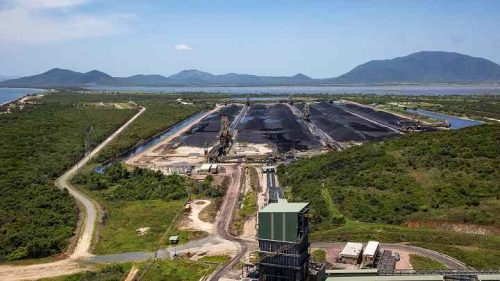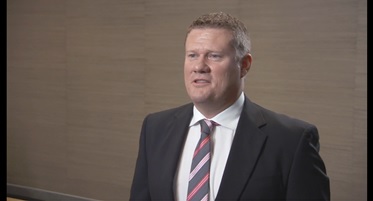Brisbane, March 26: Adani should have been fixing its coal port rather than running an ad campaign to push through its mine, the Australian Marine Conservation Society (AMCS) said after the Indian energy giant miner was fined for exceeding its pollution limits at its Abbot Point port on the Great Barrier Reef coast; and releasing polluted water into wetlands.
Reports from Adani this morning, confirmed that the company had been fined $13,055 for releasing water polluted with almost double the allowable total suspended solids (TSS) from its Abbot Point coal port into the neighbouring Caley Valley Wetlands on 7 February.
The nationally significant wetlands sit beside the Great Barrier Reef Marine Park.
Earlier, in February, the Department of Environment and Science (DES) on released test results confirming floodwaters diverted from the port into the sensitive Caley Valley exceeded the authorised level of coal concentration.
The department issued a “show cause” notice ahead of potential enforcement action that included fines or prosecution.
This came after Adani revealed it had not applied for an emergency permit to dump more polluted water into the sensitive Caley Valley wetlands during the north Queensland floods last week.

A sample taken by officials at a release point flowing to the wetlands had 33 milligrams per litre of “suspended solids”, which included coal sediment.
Adani’s environmental licence allows up to 30 milligrams a litre.
However, Abbot Point operations chief executive Dwayne Freeman clarified in a statement that the water released into the wetlands was not “coal-laden sludge”.
“This is a very minor elevation in total suspended solids … we are confident there will be no environmental impacts to the wetlands area…” Mr Freeman said.
Abbot Point Operations had confirmed in February that flood waters did not enter the Great Barrier Reef Marine Park, however flood water did enter the Caley Valley Wetlands via an authorized release point, as well as from the wetland’s broader catchment area.
Dr Lissa Schindler, AMCS Great Barrier Reef Campaign Manager, welcomed the Queensland Government’s enforcement.
She said Adani has had “two years to get their port up to scratch.
“This is the second time in two years that Adani has failed to comply with its legal obligations to protect the environment,” she said.
She criticised Adani for running an advertising blitz to pressure the Queensland Government into approving its Reef-wrecking project, whereas “Adani should have been fixing its port so it could cope with Queensland’s extreme weather event.”
AMCS has claimed that Adani has a terrible environmental record in India, including a major coal spill into the marine environment near Mumbai that it failed to clean up for more than five years.
There are other polluted beaches and destroyed mangroves in India, and “Adani cannot be trusted with our Reef.”
Adani is also being prosecuted by the Queensland Government for a 2017 pollution breach when it spilt water loaded with coal dust and other particles at levels more than 800 per cent the allowable limits.

However, on March 5, Adani had pleaded not guilty to the breach. A hearing date is now set for July 22.
AMCS is a statement said that “Adani is refusing to take responsibility for its pollution breach.
“Adani’s own letter to the Queensland government following the incident showed it discharged water contaminated by coal in amounts well above the temporary licence…
“Our Great Barrier Reef is a global treasure and one of the world’s most biologically diverse eco-systems that gives jobs to more than 64,000 people.
“But it is in grave danger due to climate change that’s being mostly driven by mining and burning coal.”
Ramakrishna VenuGopal
Similar Posts by The Author:
- Australia Post – new performance standards from 15 April
- Premier’s department fighting the release of SECRET hotel quarantine documents
- Vic Gov funds 13 programs that help international Students
- Nationals call for more funding to fight rising crime rates in regional Victoria
- Sumaira Khan, a New Delhi Student awarded La Trobe Uni Scholarship worth $225,000

